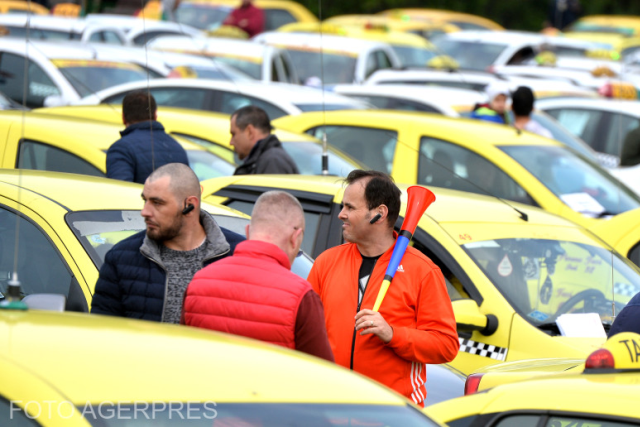Romania has new taxi regulations
Under Romanias new taxi law, which came into force on Thursday, the drivers of companies that provide alternative transport services are liable to fines.

Leyla Cheamil, 17.05.2019, 13:55
The protests of Romanian taxi drivers
against alternative ridesharing services have yielded results. They demanded
the elimination of the competition, which they regarded as unfair because the
drivers of these companies did not have similar obligations as taxi drivers
and, moreover, their incomes were not subject to tax.
The changes made by the government
to the taxi law which came into force on Thursday and which make alternative
ridesharing almost impossible have already caused effects. Four drivers were
fined in Bucharest, three of them being banned for using their cars for six
months. Under the new provisions, drivers who use ridesharing platforms such
as Clever, Bolt and Uber and who do not have a taxi licence are liable to fines
that can go to as much as 10,000 euros.
The transport minister Razvan Cuc
says, however, that the new law does not ban ridesharing platforms and has advised
the drivers who were fined to appeal the fines in court if they feel they were
wronged. The authorities have given assurances that they will issue new
legislation to regulate this market and the operation of companies such as Uber
and Clever. Transport minister Razvan Cuc:
We’ve been working on the draft of
the order for a month. The representatives of Uber, Clever and Bolt came to the
ministry, we talked, they had some suggestions and we agreed to hold a new
meeting next week to finalise and integrate these observations. So we are
working to regulate this field. The order we have issued, Ordinance no. 21, is
intended to combat piracy. As far as I know, piracy is when you transport
people and do not declare the money you receive. I know that in Uber’s case,
when you place an order, the payment is made online and proof is issued that
the payment was made, so they are not pirates.
According to the Coalition for a
Digital Economy, which represents Uber, Bolt and Clever, the number of
ridesharing drivers working on Thursday dropped by 25% compared with the daily
average, which led to an increase in waiting time to more than ten minutes. This
is caused by the uncertainty created by the delay in the adoption of specific
regulations and the enforcement of the changes to the taxi law, explained the
representatives of the Coalition for a Digital Economy, adding that this
uncertainty is likely to continue until the government passes the new
regulation.






























